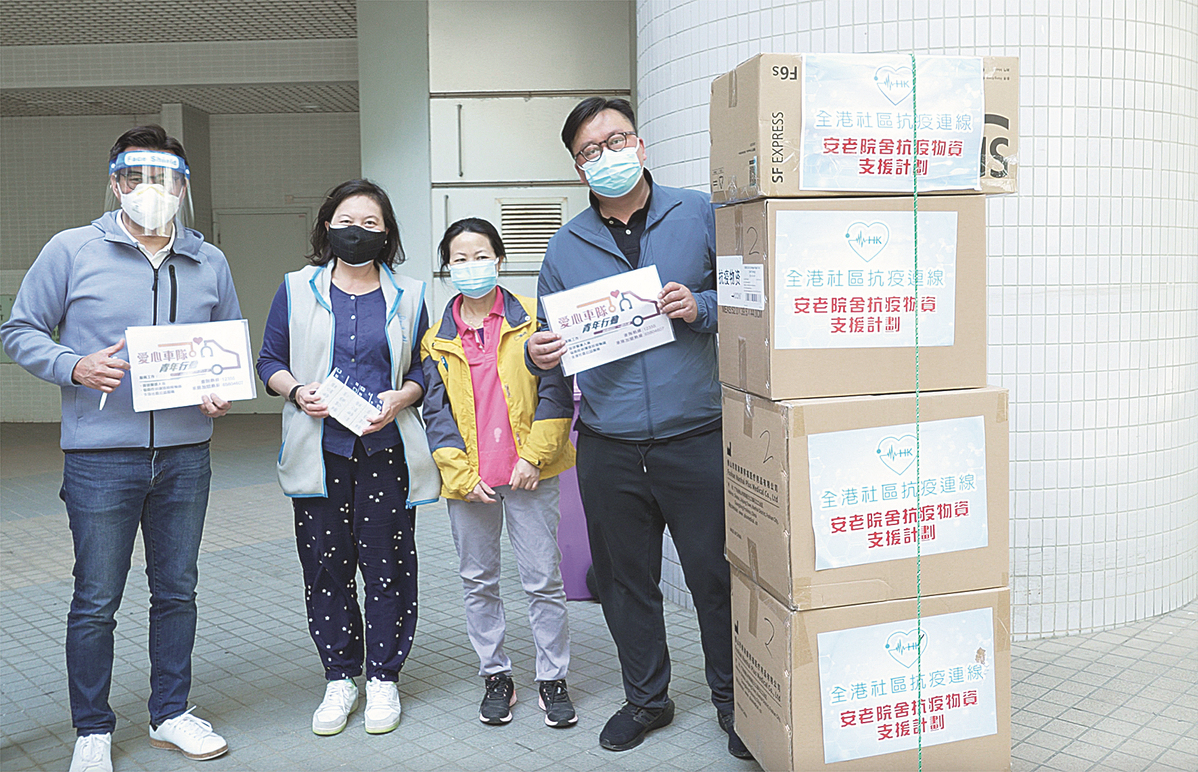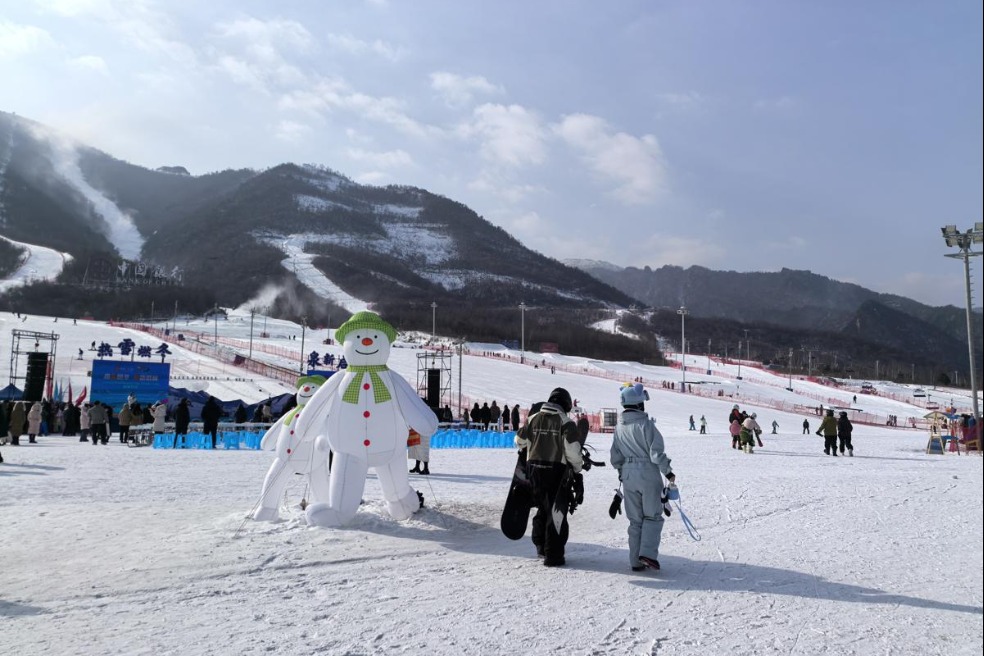Driving to the front line in pandemic fight


Clarence Ling Chun-kit sprayed disinfectant on his palms before delivering anti-pandemic supplies to an elderly care home in San Po Kong, Hong Kong, on March 10.
It's part of Ling's job that's repeated many times a day, and persistent contact with the chemicals has left his hands rough, cracked and scabrous.
But for Ling, chairman of the Y Elites Association, transporting supplies to places that need them badly amid the pandemic overshadows his skin problems. He set up a fleet of vans with more than 300 volunteer drivers on Feb 20 to help distribute resources and render assistance to residents affected by the city's COVID-19 outbreak.
Ling said one of the major problems in Hong Kong's battle against the pandemic is that donations are unable to be distributed on time because the city's logistics sector has been hard hit by a severe labor shortage, with many front-line workers infected or isolated as close contacts of confirmed COVID-19 patients. Hong Kong has recorded new infections in the tens of thousands in the past few days.
The situation is exacerbated by the low two-dose vaccination rate of less than 41 percent among people aged 80 or above. As of Sunday, people in that age group had accounted for more than 70 percent of the city's COVID-19 fatalities. With the virus having spread to more than 750 nursing homes-about 90 percent of the city's total-Ling said protective equipment and rapid antigen test kits are urgently needed in such places.
His team has received donations including traditional Chinese medicine that can alleviate COVID-19 symptoms, instant food, alcohol sanitizers, goggles and rapid antigen test kits from businesses in Hong Kong and on the Chinese mainland. The products are packed into cardboard boxes, with each van carrying up to four boxes.
On arrival at the elderly care home in San Po Kong, where more than 30 patients have tested positive for COVID-19, Ling put on a face shield and delivered the boxes.
Ling said he wasn't worried about being exposed to the virus.
"We have to collaborate in taming the severe situation as soon as possible, although our drivers (including myself) are under pressure as no one would want to get infected and spread the virus to their families," he said.
Ling's team also transports volunteer doctors and nurses to care homes to vaccinate the elderly.
As team leader, Ling spends more than eight hours a day coordinating teamwork and delivering the goods.
"Most of the volunteer drivers have full-time jobs themselves, so it would take a lot of time arranging their schedules," he said. "Meanwhile, many retirees have also joined the team, fully aware of the risk of getting infected. Their love for Hong Kong keeps them going and they want to join the battle."
Some drivers have even encouraged their family members to join in, he said.
Expressing concern over the high number of infections recorded in Hong Kong each day, Ling has also set up a digital clinic platform that allows COVID-19 patients to consult with online doctors. His team of drivers transports medicine and anti-pandemic necessities to patients after they're diagnosed.
At least 32,000 antivirus items have been dispatched to nursing homes, NGOs, families under mandatory quarantine and elderly people living alone, with some 20,000 residents benefiting so far.
"When our team calls it a day, it will mean we've defeated the coronavirus," Ling said.





































